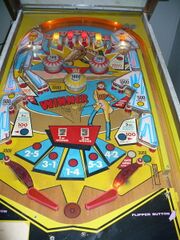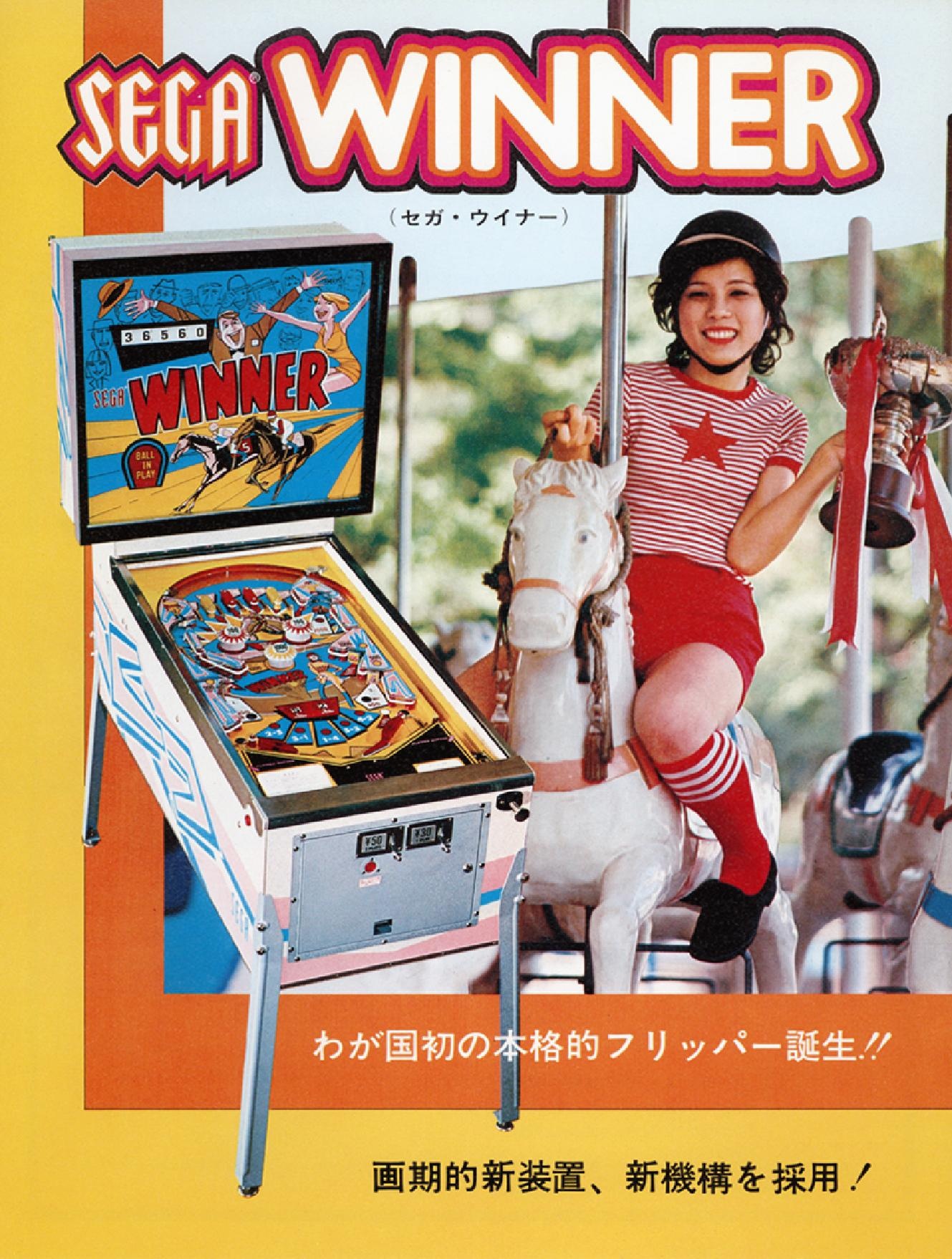Difference between revisions of "Winner"
From Sega Retro
m (Text replacement - "{{translate-JP}}" to "{{translate|JP}}") |
|||
| Line 19: | Line 19: | ||
==Promotional material== | ==Promotional material== | ||
{{gallery | {{gallery | ||
| − | |{{gitem| | + | |{{gitem|Winner Pinball JP Flyer.pdf|JP flyer}} |
| − | |||
}} | }} | ||
Revision as of 04:25, 16 September 2021
 |
This article contains untranslated text or images that are written in Japanese.
The original text should stay, but please improve the quality of this article by providing a supplementary English translation. |

| |||||||||
| Winner | |||||||||
|---|---|---|---|---|---|---|---|---|---|
| System(s): Electro-mechanical | |||||||||
| Publisher: Sega | |||||||||
| Developer: Sega | |||||||||
| Number of players: 1 | |||||||||
|
This teeny-tiny article needs some work. You can help us by expanding it.
Winner (セガ・ウイナー) is a 1972 electro-mechanical pinball table manufactured by Sega. The game has a horse racing theme.
Winner is significant for two reasons, firstly as it stands as Sega's first self-engineered pinball table (the company had previously made a business in Japan importing tables from the US by Bally and Williams), but also because it marks the beginnings of the Japanese pinball scene which saw a run of successes during the 1970s. In a market dominated by US imports, Sega's tables were significantly cheaper and could offer better returns, with games priced as low as ¥30 (¥50 being the standard at the time).
Winner was not released outside of Japan.








